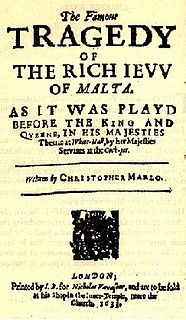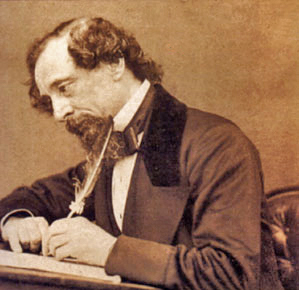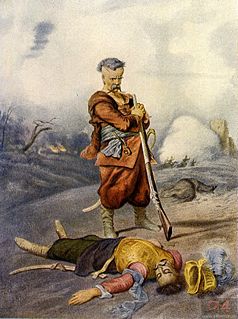 W
WNick Bougas is an American documentary film director, illustrator, and record producer. As a cartoonist, he has used the pen name A. Wyatt Mann to produce racist, antisemitic and homophobic cartoons.
 W
WLouis-Ferdinand Céline was the pen name of Louis Ferdinand Auguste Destouches, a French novelist, polemicist and physician. His first novel Journey to the End of the Night (1932) won the Prix Renaudot but divided critics due to the author's pessimistic depiction of the human condition and his writing style based on working class speech. In subsequent novels such as Death on the Installment Plan (1936), Guignol's Band (1944) and Castle to Castle (1957) Céline further developed an innovative and distinctive literary style. Maurice Nadeau wrote: "What Joyce did for the English language…what the surrealists attempted to do for the French language, Céline achieved effortlessly and on a vast scale."
 W
WFagin is a fictional character and a secondary antagonist in Charles Dickens' 1838 novel Oliver Twist. In the preface to the novel, he is described as a "receiver of stolen goods". He is the leader of a group of children whom he teaches to make their livings by pickpocketing and other criminal activities, in exchange for shelter. A distinguishing trait is his constant—and insincere—use of the phrase "my dear" when addressing others. At the time of the novel, he is said by another character, Monks, to have already made criminals out of "scores" of children. Nancy, who is the lover of Bill Sikes, is confirmed to be Fagin's former pupil.
 W
WJessica is the daughter of Shylock, a Jewish moneylender, in William Shakespeare's The Merchant of Venice. In the play, she elopes with Lorenzo, a penniless Christian, and a chest of her father's money, eventually ending up in Portia and Bassanio's household. In the play's dramatic structure, Jessica is a minor but pivotal role. Her actions motivate Shylock's vengeful insistence on his "pound of flesh" from Antonio; her relationships with Lorenzo and Shylock serves as a mirror and contrast to Portia's with Bassanio and with her father; her conversion to Christianity is the end of Shylock's line's adherence to the Jewish faith.
 W
WThe Jew of Malta is a play by Christopher Marlowe, written in 1589 or 1590. The plot primarily revolves around a Maltese Jewish merchant named Barabas. The original story combines religious conflict, intrigue, and revenge, set against a backdrop of the struggle for supremacy between Spain and the Ottoman Empire in the Mediterranean that takes place on the island of Malta. There has been extensive debate about the play's portrayal of Jews and how Elizabethan audiences would have viewed it.
 W
WThe Merchant of Venice is a 16th-century play written by William Shakespeare in which a merchant in Venice named Antonio defaults on a large loan provided by a Jewish moneylender, Shylock. It is believed to have been written between 1596 and 1599.
 W
WOff on a Comet is an 1877 science fiction novel by Jules Verne.
 W
WThe topic of racism in the work of Charles Dickens has been discussed in scholarly circles, increasingly so in the 20th and 21st centuries. While Dickens was known to be highly sympathetic to the plight of the poor and disadvantaged in British society, like many other authors of the period he expressed attitudes which have been interpreted as racist and xenophobic in his journalism and works. Dickens frequently defended the privileges held by Europeans in overseas colonies and was dismissive of what he termed "primitive" cultures. The Oxford Dictionary of English Literature describes Dickens as a nationalist who frequently stigmatised non-European cultures.
 W
WShylock is a fictional character in William Shakespeare's play The Merchant of Venice. A Venetian Jewish moneylender, Shylock is the play's principal antagonist. His defeat and conversion to Christianity form the climax of the story.
 W
WTaras Bulba is a romanticized historical novella by Nikolai Gogol. It describes the life of an old Zaporozhian Cossack, Taras Bulba, and his two sons, Andriy and Ostap. The sons study at the Kiev Academy and then return home, whereupon the three men set out on a journey to the Zaporizhian Sich, where they join other Cossacks and go to war against Poland.